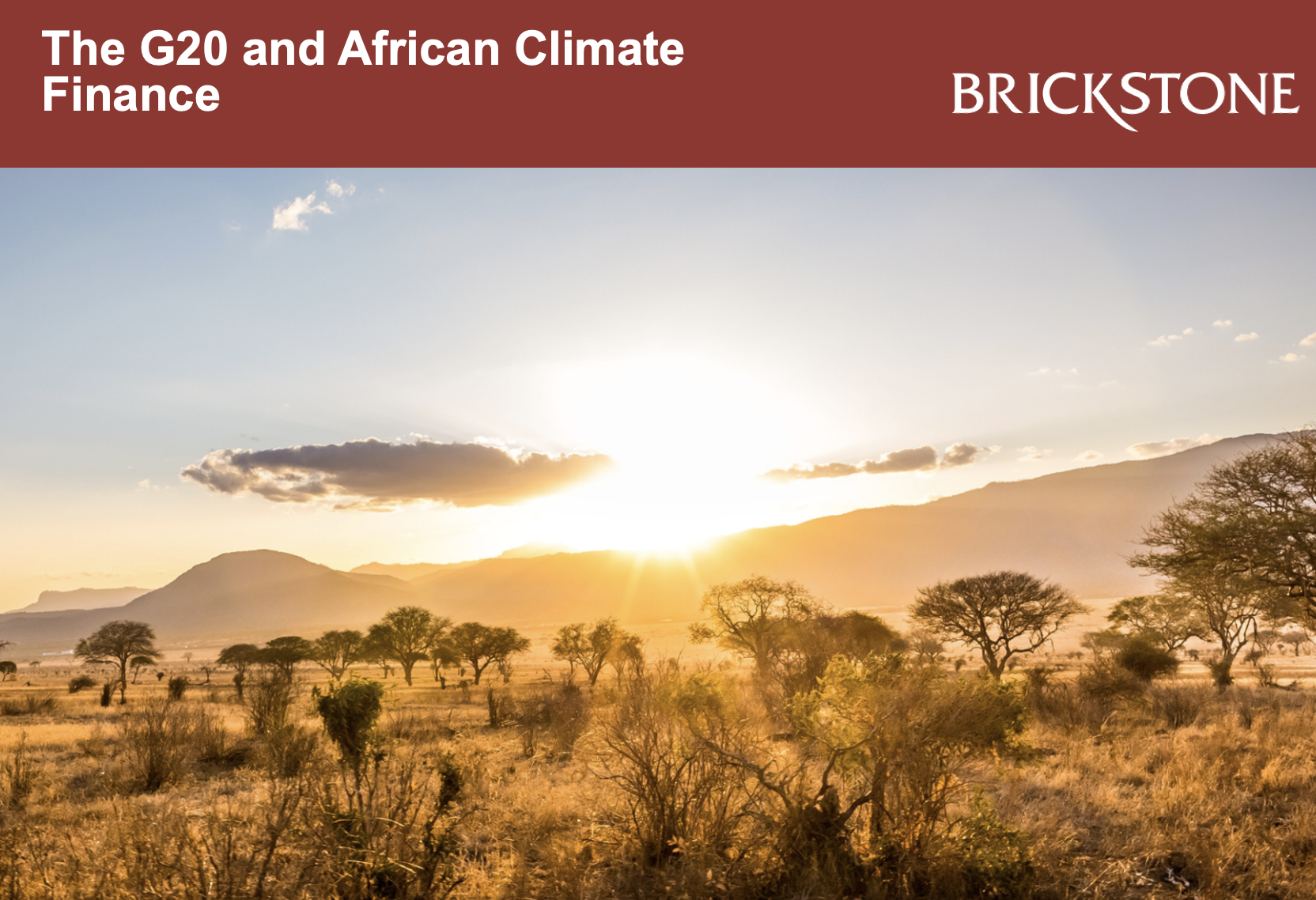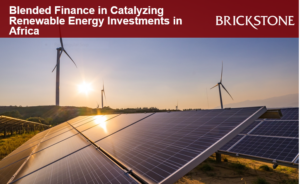The G20 and African Climate Finance
Climate Change, African Climate Finance & G20
COP27 has concluded with some progress having been made on issues that matter most to Africa. A breakthrough on loss and damage negotiations has been achieved (albeit limited), an additional $230 million has been pledged for adaptation financing and a work programme to promote climate technology solutions in developing countries was launched, among other achievements.
While these are steps in the right direction, Africa’s financial need to ensure meaningful progress towards climate change mitigation and adaptation remains unmet and will continue to be a major issue going forward. The main challenge for African governments is balancing short-term needs with mid- to long-term outlooks on returns on climate investments, debt, global risks and opportunities.
This requires altered concepts of finance for development that is responsive to and appropriate for a rapidly changing environment beset by a growing debt burden and a challenging geopolitical and economic outlook.
The mobilising demands of African countries to address their climate needs and fulfil their nationally determined contributions commitments necessitates innovative global approaches towards resource mobilisation. For this, the role of the G20 is instrumental.
Through the Sustainable Finance Working Group, the G20 seeks to mobilise sustainable finance by identifying institutional and market barriers, developing options to overcome such barriers, and contributing to a better alignment of the international financial system to the internationally agreed climate objectives.
SAIIA’s paper explores Africa’s challenges with the international finance architecture as presently constituted, and how it can be improved to achieve better outcomes on Africa’s sustainable development agenda. Specifically, it explores the innovations in climate financing that can help Africa mitigate climate related loss and damage as well as manage its transition to low carbon economies.
It also explores the potential role of the G20 in supporting these efforts through regulation and incentives on private sector financing, mobilising public and institutional funds, and pursuing more just transition partnerships.
This article by Brickstone Africa reviews SAIIA’s paper on the G20 and African Climate Finance, highlighting key facts and insights.
Facts about The African Climate Finance
Current climate finance flows to Africa pale in comparison to what is needed to adapt to climate change.
Between 2016 and 2020, Africa obtained only $19.5 billion in climate funding although annual adaptation costs needed for the continent are estimated at $30-50 billion until 2030, indicating significant financing gaps.
Much of the past funding has come from Development Finance Institutions and national governments with private investors playing at the margins. This trend may yet change as governments’ revenues have been affected by the impact of the COVID-19 pandemic and the Russia-Ukraine war, creating far less fiscal space for climate investments.
The fiscal space is further narrowed by debt servicing obligations as countries borrow to meet development needs in an environment of rising interest rates, high inflation, and tepid growth. Essentially, African governments lack the financial wherewithal to maintain and improve on current efforts.
Financial, governance, and skills constraints across the African continent (and most of the developing world) are some of the main factors limiting private sector involvement in green investments. Except for Nigeria, South Africa and Kenya, most countries have underdeveloped capital and financial markets making it difficult for investors to access long-term local currency financing.
Recourse to foreign currency funds opens investors to risks associated with increased exposure to exchange rate volatility and reduced returns on foreign currency investment. Furthermore, poor governance manifested in feeble regulatory frameworks, corruption, and complex administrative processes increases the risk for potential investors. In the meantime, the information, data, and skills needed to develop, execute, and evaluate projects are largely missing on the continent. Combined, these domestic structural factors increase the perceived and real risks for private financiers.
For mainstream financiers including bilateral development finance institutions, studies have found that the accreditation process is demanding and time-consuming particularly for first-time participants.
There have also been instances of policy flip-flopping after the accreditation process has begun. These complexities in accessing global climate funds lock developing countries out of existing financing arrangements thus leaving most African countries unable to implement projects required to combat and adapt to climate change.
This can be averted by streamlining the official process and providing step-by-step guidance. With simplified processes for these mainstream financiers, combined with innovations that would court private investments, Africa’s access to climate financing can be significantly improved.
Read the complete paper here.






